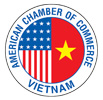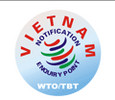According to experts, there is a need to promote participation in the global production network and value chain by enhancing connectivity within industries, domestic regions, and across different areas.

Leading the export
The value chain linkage report of Vietnamese businesses to the global value chain by the Vietnam Institute for Economic and Policy Research (VEPR) clearly stated that the business sector with foreign direct investment (FDI) has played a crucial role in integrating Vietnam into the global production chain and enhancing production capacity. Notably, the presence of multinational corporations in this area has contributed to the transfer of technology and management skills, improving the technological proficiency of the Vietnamese workforce, increasing labor productivity, and enhancing the competitiveness of Vietnamese businesses in the global value chain.
The FDI sector has become the leading force in Vietnam's exports, with its proportion steadily increasing in the total export turnover. Exports by FDI enterprises account for over 70% of the country's total export value, and the trade balance of FDI enterprises' goods has a significant surplus. Comparing Vietnam with other ASEAN countries during the 2015-2019 period, only four countries—Philippines, Singapore, Malaysia, and Vietnam—have export volumes of high-tech products averaging over 30%. This indicated that Vietnam was gradually closing the gap with regional countries in terms of the proportion of high-tech exports. Additionally, the proportion of processed exports in Vietnam's total export value has significantly increased. This proportion rose from 65% in 2016 to 85% in 2020 and 86.2% in 2021. This is a positive sign, reflecting a shift in Vietnam's export structure towards higher value-added.
However, according to Dr. Nguyen Quoc Viet, Deputy Director of VEPR, technology transfer between FDI enterprises and domestic businesses is still weak. The majority of FDI enterprises in Vietnam have 100% foreign capital and focus on utilizing cost advantages in terms of factories, labor, and tax incentives rather than developing the supply chain. The number of FDI enterprises involved in technology transfer in Vietnam is relatively small, and most technology transfer contracts are between foreign parent companies and their subsidiaries in Vietnam. Direct participation by Vietnamese businesses in signing technology transfer contracts with foreign partners remains very low.
Certain industries in Vietnam still rely on outdated technology, and only a few, like the leather and footwear industry, have achieved a higher proportion of advanced technology. In terms of technological readiness and innovation, Vietnam ranks low (90th out of 100), with a ranking of 92/100 for foundational technology, 77/100 for innovation capacity, and 73/100 for FDI and technology transfer (World Economic Forum, 2019). Therefore, the share of medium and high-tech product value in Vietnam's total export value is only 30%, while regional countries are at 80%, with even the Philippines at 50%. This indicates that Vietnam needs more effort to enhance industrialization and technology transfer.
Reassessing support policies and improving the business environment
Speaking at the seminar on the collaboration between Vietnamese and FDI enterprises to deepen participation in the global value chain, Simon Kreye, Deputy Ambassador of the Federal Republic of Germany in Vietnam, remarked that the Vietnamese government has implemented various policies to support the participation of small and medium-sized enterprises (SMEs) in industries and value chains. However, it seemed that Vietnamese companies were only involved in the lower tiers of the global value chain and were not yet fully connected with FDI enterprises.
Many experts also believed that the linkage of Vietnamese enterprises with FDI enterprises was limited due to the weak internal capacity of Vietnamese businesses. Therefore, enhancing the capabilities of domestic enterprises is a crucial issue that needs attention. Vietnamese businesses must actively strengthen their links with FDI enterprises and enhance connectivity between industries, domestic regions, and different areas. Additionally, it is essential to identify the policy impacts at the macro level.
To make this collaboration effective in line with Vietnam's goal of attracting FDI, Nguyen Quoc Viet emphasized the need to reassess all support policies and improve the business environment. According to him, the support industry is a market with current and future significant demands, providing a favorable opportunity to attract investment to Vietnam. Ensuring a stable supply of raw materials and accessories for this industry is crucial, given that the current capacity of Vietnamese enterprises to meet this demand is only about 36%, much lower than that of China and India.
Furthermore, there is a particular need to focus on enhancing the competitiveness of the entire economy and the domestic business sector. “Without early attention and efforts to improve competitiveness for the Vietnamese business community, the effectiveness of FDI attraction will not improve significantly in the near future. Therefore, addressing this issue is a necessary condition for a brighter economic picture for Vietnam with a more pronounced presence in the global supply chain, in the effort to attract FDI,” emphasized Viet.
Source: VCN
Keywords: solutions, export, enterprises, development, supply chain



















